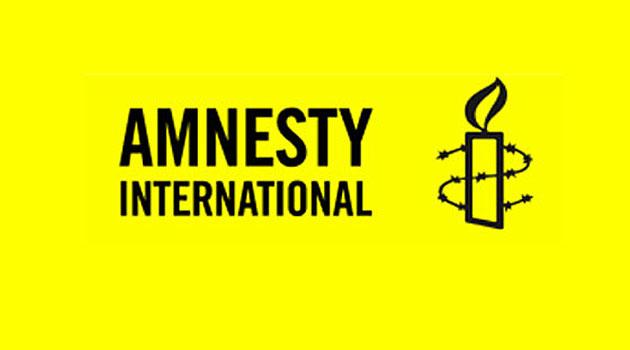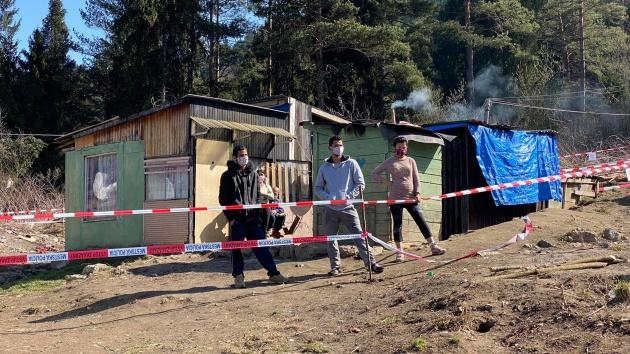NGOs call on new Slovak Government to end the segregation of Romani children in education

Amnesty International Slovakia (AIS), EduRoma, the Romani Advocacy and Research Center and the Roma Education Fund are calling on the new Government in Slovakia to end the segregation of Romani children in the schools. They say the Government and National Assembly have an historic opportunity to end the human rights violations committed against Romani children there, to arrange for their equal access to education, and thereby to give them a chance at a better future.
The NGOs issued their challenge to the newly-elected MPs in the unicameral legislature on the occasion of the International Day against Racial Discrimination (21 March). Rado Sloboda, director of AIS, informed the SITA agency of the effort.
Children of Romani origin have been segregated in education for years
The organizations say they are aware that the new Government led by Prime Minister Igor Matovič (OĽaNO) has a lot of work ahead of it so that the virus that is threatening the entire world will be stopped. They warn that in addition to that effort, they cannot forget about the injustices in Slovak society that have been underway for years.
“One of the most important challenges is to end the segregation of Romani children. Today the schools are closed, but once they reopen, thousands of children in Slovakia will return to classes and schools that are segregated, that deny them their right to education and an opportunity for a better future. Indifference, lack of action, and tolerance of racial discrimination by politicians in Slovakia must end,” the NGOs say.
“I want to believe that Igor Matovič is aware of the fact that it is possible to effectively combat discrimination against Romani children in the schools only if the Government, under his leadership, adopts the necessary legislative, financial and methodological measures to eliminate it. There are no other ways to effectively deal with this phenomenon,” said the director of the EduRoma organization, Vlado Rafael.
According to Sloboda, the human rights of Romani children have long been ignored, overlooked or postponed by politicians in Slovakia. “The new Government has a unique opportunity to demonstrate that human rights belong to all people equally. It will probably never be possible to correct all the damages that segregated classes and schools have caused to these concrete children. However, there is a chance here to end the years of discrimination, segregation and unfairness,” he said.
NGOs prepare recommendations to improve the situation
The organizations have also submitted recommendations to the Government for improving the situation of Romani children and their right to equal education in Slovakia. They are recommending systemic changes, an increase in the competences of crucial stakeholders, and support for them from the state.
They are also proposing introducing a comprehensive, legally-binding definition of segregation into the legal system. “Increase the authority and the financial and human resources of the State School Inspectorate so it can play a bigger role when auditing and defining new school districts, as well as when monitoring all forms of segregation, preventing them, and initiating effective measures to eliminate them,” the NGOs recommend.
The organizations are warning of the need to educate pedagogical staff and ensure the needs of children from socially disadvantaged environments will be taken into account in the schools. “Arrange for support in terms of expertise, staff and financing for a Center for Educational Methodology with the aim of continually educating teachers in schools attended by children from socially disadvantaged environments and providing effective didactic aid and counseling on eliminating discrimination against Romani children in school settings,” they propose.
Other demands by the NGOs include correcting the diagnoses of children who have been enrolled into “special” classes and schools and support for their reinsertion into the mainstream education system, and they are calling for verified diagnostic methods from abroad to be applied in Slovakia. “Arrange for the re-testing of all children in ‘special’ schools and classes in diagnostic centers and arrange their reinsertion into mainstream schools with adequate support. Arrange for the reassessments to be based on potential, using a culturally-sensitive testing system,” the recommendations to the Government advise.
NGO Recommendations:
- Introduce a comprehensive, legally-binding definition of segregation in the (education) legal system as a basis for effectively combating the separation of part of the population.
- Ensure that the Ministry of Education, Youth and Sport of the Slovak Republic has the power to require commitments from the founders of schools and from individual schools themselves to eliminate discrimination against Roma pupils in educational practice and also to effectively enforce that commitment.
- Ensure that the inclusion of newly-established schools in the network of schools and educational facilities of the Ministry of Education, Youth and Sports of the Slovak Republic at the request of the respective founder complies with pre-developed, binding, publicly-available evaluation criteria that effectively prevent the occurrence of residential segregation.
- Adopt effective legislative measures to ensure that the ethnic and social composition of each grade level in the population of the relevant school region is taken into account and that segregation is eliminated in the event of any changes in the establishment of school districts.
- Increase the authority and the financial and human resources of the State School Inspectorate so it can play a bigger role when auditing and defining new school districts, as well as when monitoring all forms of segregation, preventing them, and initiating effective measures to eliminate them.
- Arrange for support in terms of expertise, staff and financing for a Center for Educational Methodology with the aim of continually educating teachers in schools attended by children from socially disadvantaged environments and providing effective didactic aid and counseling on eliminating discrimination against Romani children in school settings.
- Arrange for the re-testing of all children in ‘special’ schools and classes in diagnostic centers and arrange their reinsertion into mainstream schools with adequate support. Arrange for the reassessments to be based on potential, using a culturally-sensitive testing system.
- Ensure the systematic implementation of successful national projects aimed at children from socially disadvantaged backgrounds and their continuous funding from the state budget
